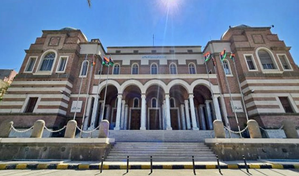Tripoli: Representatives of the Libyan High Council of State and the House of Representatives signed an agreement, sponsored by the UN Support Mission in Libya (UNSMIL), to end a crisis related to central bank governance.
According to Stephanie Koury, UNSMIL officer-in-charge, the agreement provides for consultations by the High Council of State and appointment of the Governor and Deputy Governor by the House of Representatives within one week from the signing of the agreement, and a Board of Directors to be appointed within two weeks from the appointment of the Governor, Xinhua news agency reported.
The agreement also includes provisions on good governance, transparency, and independence concerning the central bank.
“Despite the complex challenges associated with this crisis, this agreement could mark a new beginning for future agreements that the Libyan people aspire to and that Libya urgently requires,” said Koury during the agreement signing ceremony.
Koury called on all parties to constructively engage and collaborate to address outstanding issues through inclusive and meaningful dialogue, paving the way for the unification of institutions and restoring their legitimacy.
“I also want to emphasise the urgent need to end the closure of oil fields and disruption of oil production and export,” Koury said.
The Tripoli-based Presidency Council recently announced the decision to replace the central bank Governor. However, the Eastern-based House of Representatives rejected this decision, calling it outside the Presidency Council’s authority.
In retaliation to the Presidency Council’s decision, the Eastern-based government announced closing the country’s oil ports and fields.
Since the fall of late leader Muammar Gaddafi’s regime in 2011, Libya has been struggling with fragmentation. The country is now divided between two main rival administrations: The eastern-based government, backed by the House of Representatives, and the western-based government in Tripoli, supported by the Presidency Council.
The divide has led to frequent clashes, competing claims of legitimacy, and struggles over control of resources, including oil.
–IANS


Comments are closed.